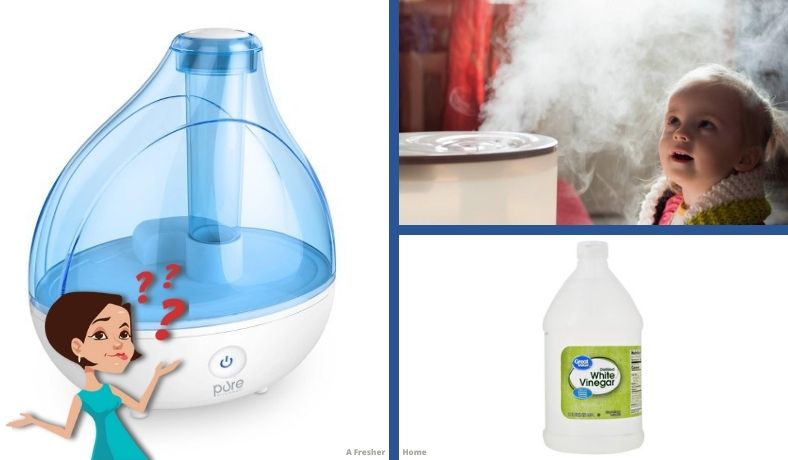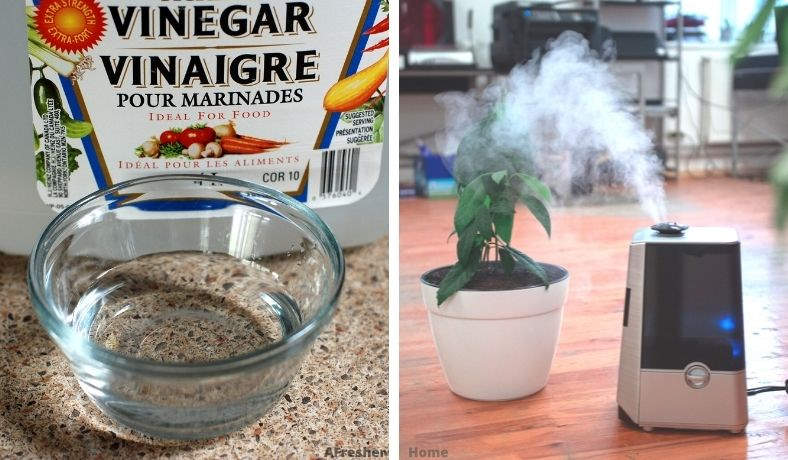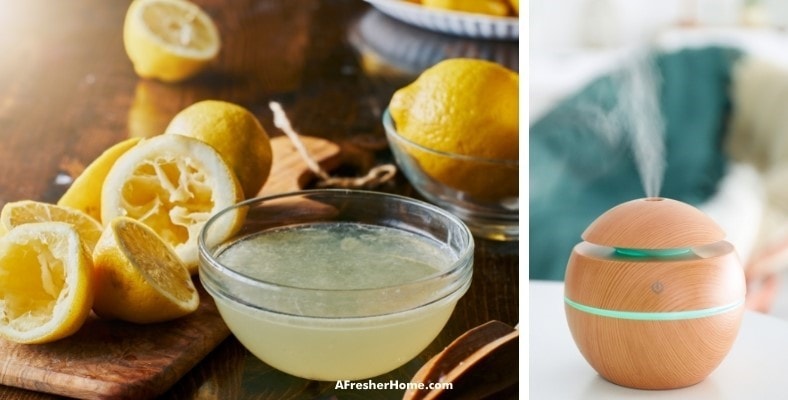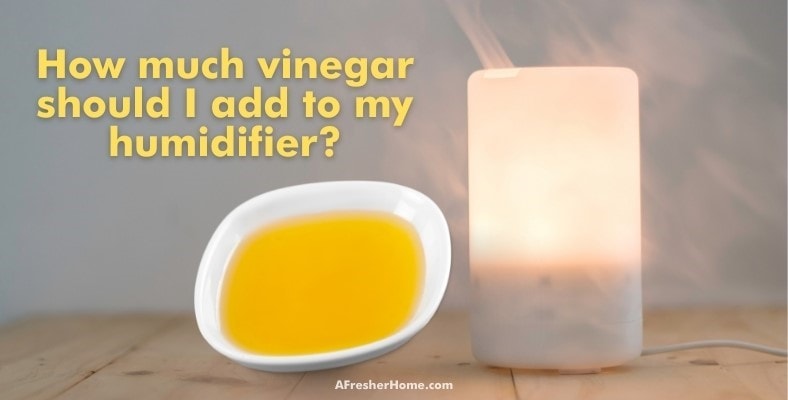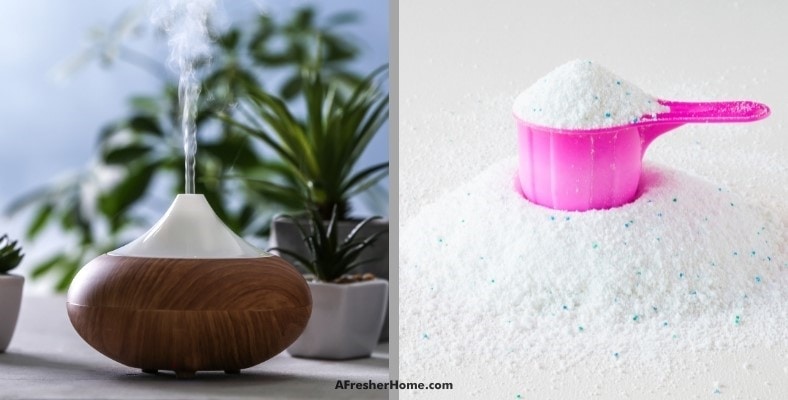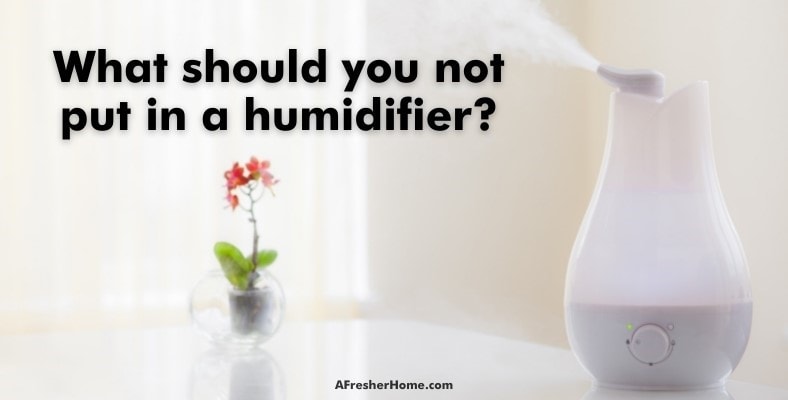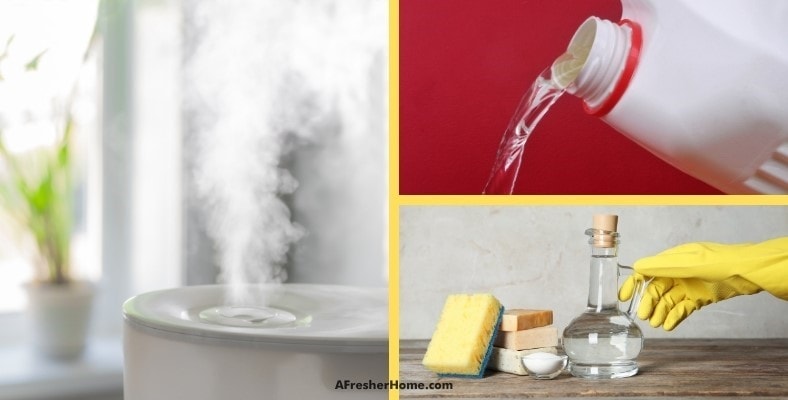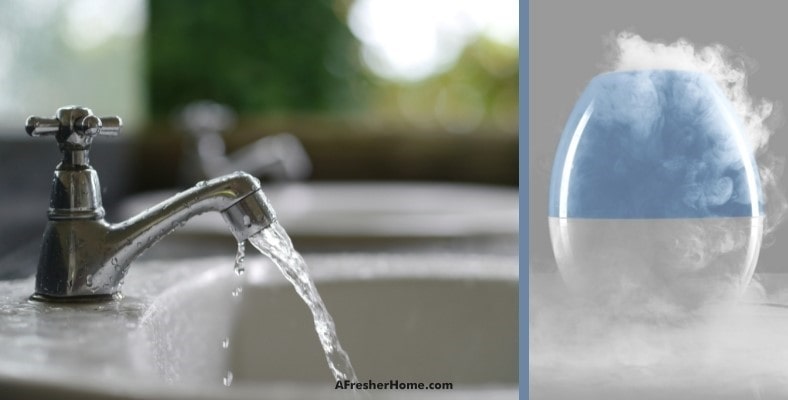It can be tempting to just run vinegar or other cleaners through your humidifier – but it’s not always a great idea. Read on to learn specifically why and what your best options are.
Contents
Can you run vinegar through a humidifier?
It’s a bad idea to run vinegar through a humidifier when it’s turned on. If vinegar is run through a humidifier it will be diffused into the room’s air along with the water vapor. This can cause irritation to your eyes, nose, throat, and lungs. Vinegar can also be damaging and drying to your skin.
This is especially true if you have dry skin, sensitive skin, or any kind of skin condition.
When is vinegar good to use?
However, when it’s turned off, vinegar is good for cleaning the inside of the water tank and other parts. This is because vinegar is an excellent cleaning agent and will get rid of any build-up of mold, mildew, or bacteria you’ll find growing over time.
If you use vinegar to clean a humidifier, it’s very important that you rinse it out thoroughly to make sure that all of the vinegar is gone.
Can I put lemon juice in my humidifier?
Like vinegar, the acidity of lemon juice makes it a good cleaning agent. But it should not be run through the humidifier or left inside. Lemon juice isn’t bad for you but it can definitely irritate your skin and eyes if it’s airborne.
While you might not notice it, the moisture diffused through a humidifier is all around you and will land on your skin and face. If the water in the tanks contains lemon juice it will be diffused through the air along with the water.
This means the lemon juice can also fall on your skin and face, causing dryness and irritation – essentially the opposite of what you want from a humidifier.
Cleaning a humidifier properly with lemon juice
It’s important to make sure that the lemon juice is entirely removed after cleaning so that it doesn’t diffuse but also so that it doesn’t cause bacteria and mold to build up.
This is especially important if you use fresh lemon juice or make your own cleaning products with fresh lemon juice or lemon rinds. Even in small amounts, pieces of lemon or drops of lemon juice can become stuck in the corners and cause bacteria and mold to build up.
After using the lemon juice, make sure to rinse the tanks with clean water thoroughly.
How much vinegar should I add to my humidifier?
This depends on the size of your humidifier and the size of its tanks. Around four tablespoons per gallon should be enough. [Again, this is for cleaning – running vinegar through the humidifier while it’s on isn’t recommended.]
As the humidifier tanks are normally plastic there shouldn’t be any worries about damaging it. This means that you won’t have to dilute the vinegar as you would for cleaning other materials like wood for example.
It is still a good idea to use some water when cleaning out your humidifier. Especially once you have cleaned it through with vinegar, as it is important to rinse out the tanks so there is no vinegar left.
There shouldn’t be any vinegar left in the tanks that could end up diffusing into the room.
Can I run a humidifier with bleach?
A humidifier should absolutely not be run with bleach as it can be incredibly damaging to people.
Bleach can be used to clean a humidifier especially if it has become moldy or dirty. But it is essential that there is absolutely no bleach left inside the tanks. It can cause irritation to the eyes, nose, and throat.
Fumes from bleach are also dangerous especially for your lungs. This means that even a small amount of bleach being diffused through your home can be incredibly harmful.
Running bleach through a humidifier might sound like it will clean the internal mechanism of the humidifier but just isn’t worth the risk. Stick to using a small amount of bleach only when cleaning it out followed by a generous amount of water to wash it all out thoroughly.
What should you not put in a humidifier?
As a general rule, it is not a good idea to put anything other than water in a humidifier. Cleaning products can be used to clean the humidifier but these products should be completely rinsed out before the humidifier is switched on and run again.
Anything other than water can damage and clog up the humidifier itself and can have irritating or harmful effects on yourself and others in your home, who would be exposed to the other substances.
This also includes essential oils unless the humidifier is specifically designed to work with them. Oils can float and then later get into the humidifier internally where they can build up gunk or even worse.
What can I put in my humidifier to kill bacteria?
Bacteria and mold thrive in moist and warm environments so humidifiers are perfect breeding grounds.
- One way to stop bacteria from growing inside a humidifier is to regularly clean it with vinegar. Cleaning humidifier tanks regularly with vinegar will clear out bacteria and also prevent them from growing again.
- You can also clean it with bleach but that’s a bit risky if the bleach isn’t removed completely.
Rinsing should happen whenever you refill the tank, but don’t just pour in fresh water. Empty out the old water, rinse it, and then refill it.
Humidifier tanks should be cleaned about once a week. Even though you’re only adding water to the tanks, bacteria and mold can still build up, especially in a warm mist humidifier.
Is it okay to use tap water in a humidifier?
Generally speaking, yes, although this depends on the quality of the water where you live.
If you live in an area with well-filtered and clean tap water then this will be fine. However, if you live somewhere with tap water that can be easily contaminated or you have hard water (water with heavy mineral content) then it’s best to use filtered or purified water.
As a rule, don’t add any water that you wouldn’t drink. The water diffused into a room with a humidifier will fall onto your skin, eyes, and nose as well as be inhaled into your lungs as the water vapor is extremely fine, so be absolutely sure not to use anything that could cause irritation.
Using water that isn’t well-filtered or is easily contaminated can also bring in bacteria and cause mold both inside the humidifier itself, but also within your home. As a result, this can cause your home to become contaminated with a variety of microbes or other germs and possibly cause health problems for you and your family.
